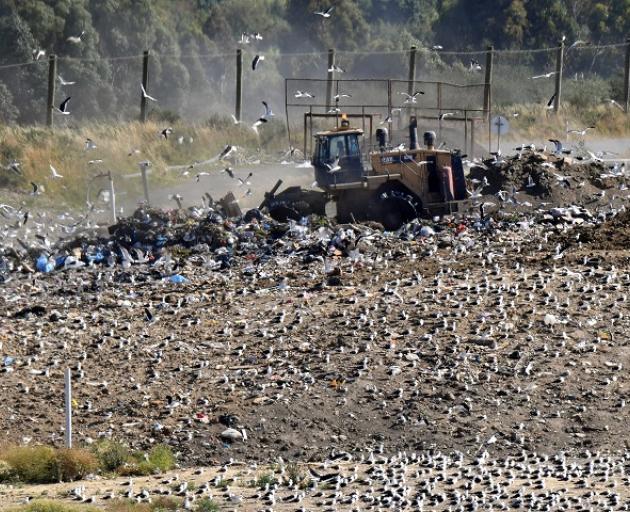
A Dunedin City Council spokesman said the council would decide in the coming months if a gull "dispersal" operation at the landfill would take place this year.
If it did go ahead, it would be the first time gulls had been dispersed from the landfill — a major food source for the birds — since August last year, the spokesman said.
It was not clear though whether last year’s dispersal operation had reduced the number of birds at the site.
It was not done to reduce the number of gulls at the landfill long term, the spokesman said.
Rather, the council continued to trial and evaluate a range of management techniques, including GPS tracking, of the birds.
"A range of sound and visual techniques and tools were used by the dispersal team [last year], including car horns, whip cracking, balloons and kites," the spokesman said.
"The dispersal activity was used to provide an idea of how the gulls’ behaviour may change as their food source at the landfill is reduced with the introduction of the new kerbside collection service in July."
The council’s draft southern black-backed gull management plan was under an ongoing review, he said.
Creating a gull management plan was a condition of consent for the planned Smooth Hill landfill after fears were raised the risk of bird strike could increase at Dunedin Airport with the closure of the Green Island landfill and the opening of a new one only about 4.5km from the airport.
More than 8000 southern black-backed gulls (karoro) had been counted at the landfill, the draft plan said.
The Green Island landfill was a food source for the birds and had contributed to the "unnaturally large" population of gulls in the area.
The draft plan was submitted as part of the council’s application to extend the now-expired consent to operate Green Island.
It said Dunedin’s estimated population of 10,000 native, but unprotected, black-backed gulls would be halved by January 2028, and no culling, such as poisoning, would be required.
Birds would be dispersed from the landfill in April, May and June this year, the draft plan said.
"If the initial dispersal in 2023 results in unacceptable off-site impacts, it may be necessary to consider a culling programme in 2024 in the lead-up to the change in landfilling practices," the draft plan said.
One technique discussed was the harvesting of eggs by mana whenua and a process of oiling eggs to prevent them from hatching.
An egg-oiling trial was attempted, but any effect on the overall numbers of gulls would only become clear over the next year, the spokesman said.
No eggs were harvested, he said.












